QuestionI am a foster mom and have been bottle feeding a kitten since she was 2.5 weeks. She seemed fine, but the past three weeks her siblings have taken off, and she is still wobbly, sleeps most of the time, is only interested in seeking out the heater, and lately has been tough to feed. She is 8 weeks, and I have been feeding her a mix of formula and canned development kitten food. In the last three days her energy has decreased drastically and she is eating less. I have a vet appointment mon, but can she wait?
AnswerHi Sarah. Poor little dear. If you can get her in before Monday, I would. I'm not sure what's going on with her, but she does seem off. And I have been in the unfortunate situation of finding myself in the intensive care unit because I hadn't realized just how quickly little ones can go downhill. If she's seeking out the heater, she may have a fever. You can try taking her temperature rectally. The thermometer should be inserted about an inch into the rectum. It should read between 100 and 102.5. Anything lower is absolutely an emergency, and anything higher should certainly be checked out by a vet as soon as you can, definitely before Monday. But even if her temperature is normal, since she isn't eating normally, I'd be afraid that hypoglycemia may develop, and I'd avoid waiting the whole weekend before getting her to the vet.
There are a number of reasons why a little one may not do as well as her litter mates, ranging from a bad parasitic infection to a bacterial infection that hasn't been detected to a viral illness. The parasites and bacterial infections can usually be cleared up with treatment if they're caught in time. Viral illnesses can't be cured, but supportive care can help them through some illnesses. A vet may recommend a vitamin such as Pet-Tinic (available online, at pet stores or through your vet). Also, fluids under the skin mixed with dextrose if eating and drinking become a problem may help.
But there are a few viruses that can be a problem for kittens to get through. She is just getting to the age where she should be old enough to test for the feline leukemia and feline AIDS viruses pretty reliably. Most vets carry tests that can be run in-office and yield results in about 10 minutes. If positive, she should be separated from other cats, as the diseases are contagious (AIDS through bite wounds only). There is a chance she may fight off the diseases in 3-6 months, so you may want to retest. I have had a couple cats who tested positive test negative later on.
Another virus is called Feline Infectious Peritonitis (FIP). Unfortunately, there is no reliable test for this disease. Symptoms can include a high fever, loss of appetite, stunted growth, poor muscle tone, fluid accumulation in the belly, anemia, low white blood cell count, neurological problems and organ failure. If your vet feels any of her symptoms are consistent with the disease, a blood test could check to see if she's carrying high amounts of antibodies against the group of viruses (feline corona viruses) that sometimes lead to the condition FIP. The disease is considered uncommon, probably infecting less than 2% of cats, so hopefully this is not the case at all.

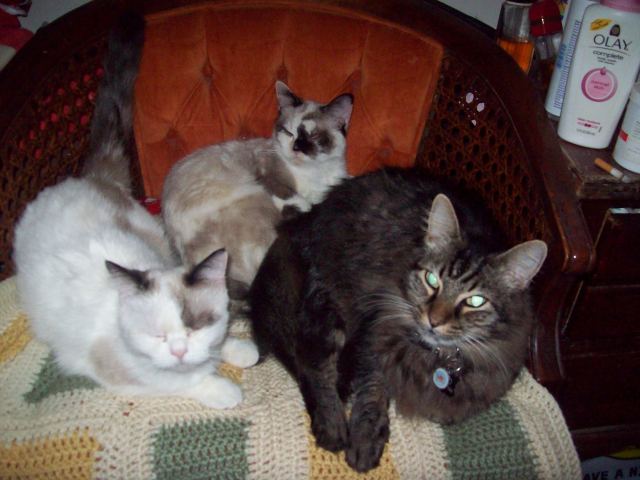 Litter Box Behaviour
Question
All Kitties
Hello!
Im writing to you fo
Litter Box Behaviour
Question
All Kitties
Hello!
Im writing to you fo
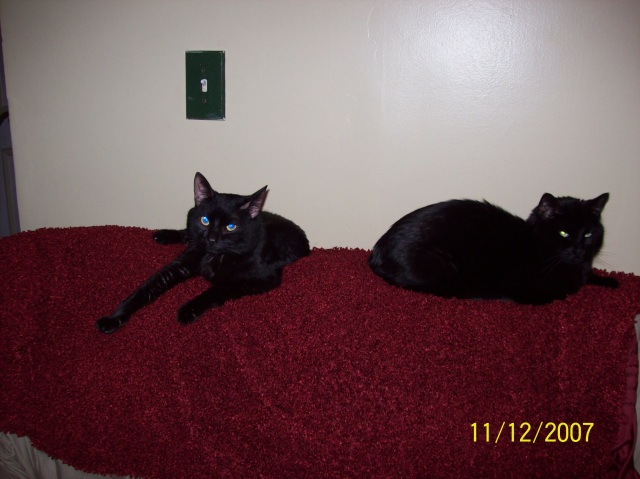 Cats continuing to pee on bed(s)
Question
Our cats...Payten and
I have read the
Cats continuing to pee on bed(s)
Question
Our cats...Payten and
I have read the
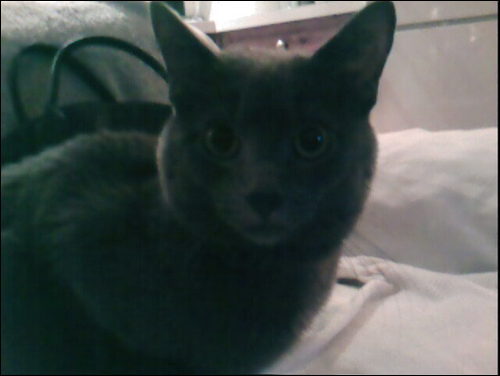 My cat pees on the carpet!
Question
My Cat Tigger
Hi I have a male cat he i
My cat pees on the carpet!
Question
My Cat Tigger
Hi I have a male cat he i
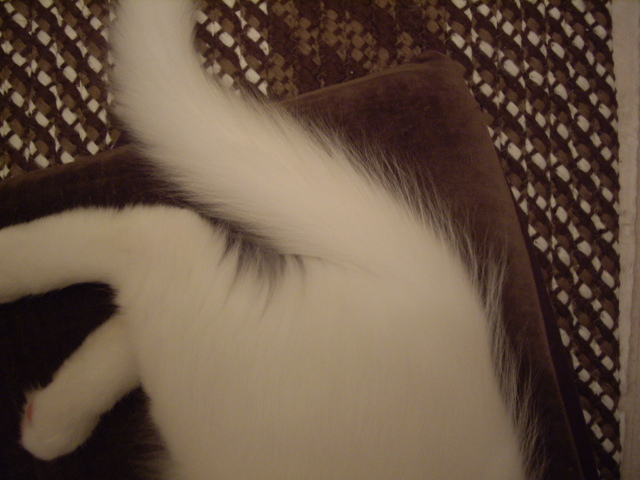 giardia coccidia
Questionthin, spiny guard hair
QUESTION: I took
giardia coccidia
Questionthin, spiny guard hair
QUESTION: I took
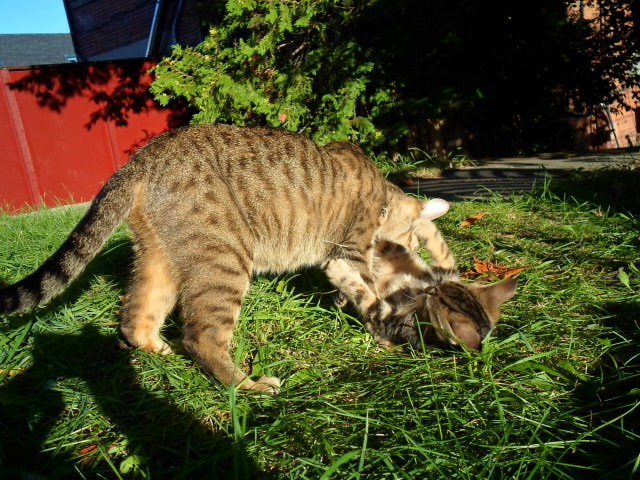 Cat Breed Identification?
Question
Playtime Pretty Girl
Hi there. &n
Cat Breed Identification?
Question
Playtime Pretty Girl
Hi there. &n